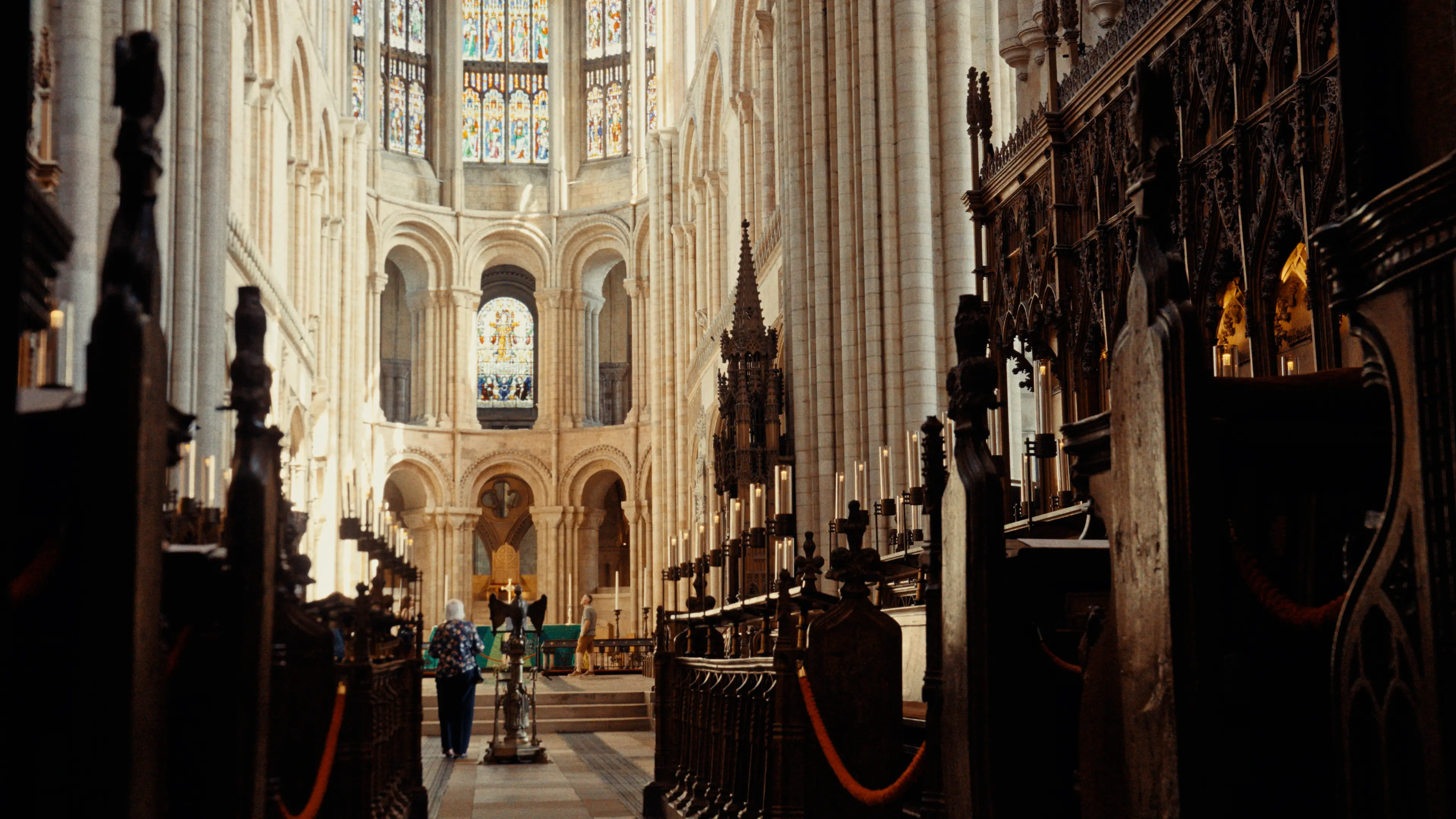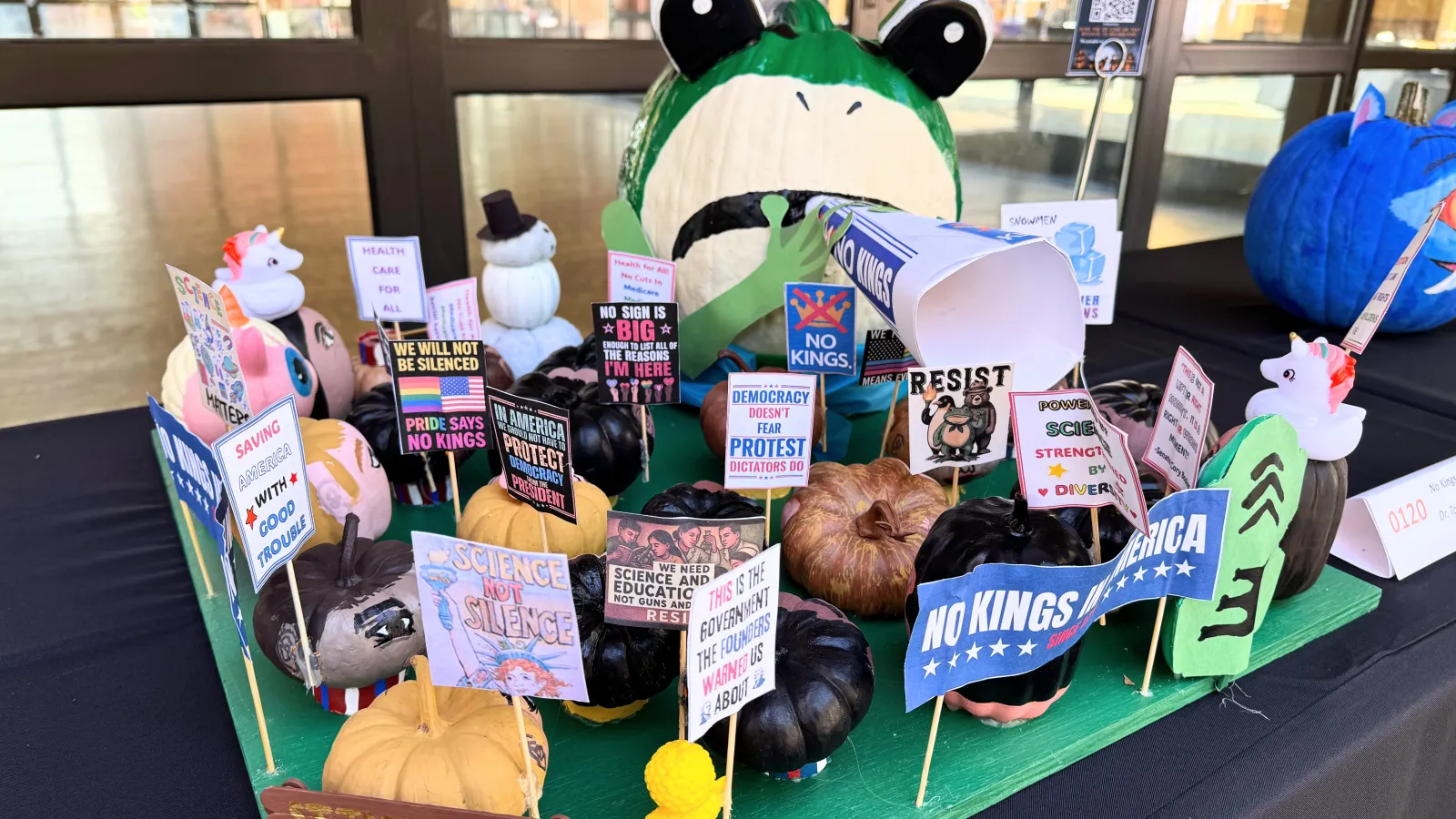Copyright thejc

Offensive material linking the medieval blood libel of William of Norwich to the New Testament story of the Holy Innocents has been removed from Norwich Cathedral following a UK Jewish Film Festival project. The documentary The Innocents – which was funded by the Jewish Small Communities Network (JSCN) – prompted a reckoning with how the medieval story was told. This led to the cathedral ditching an information sheet that tied the 12th-century blood libel – the first recorded of its kind – to the Massacre of the Innocents – the murder of boys under two ordered by King Herod and told in the Gospels. It is a pivotal move for the cathedral and shows how past and present still converge in Norwich, the city of my childhood. To grow up in a Jewish community shrouded by the story of William is to live in the icy shadow of that history and, at the same time, in the warmth of a tight-knit community that refuses to be defined by its bloody past. Depiction of William blood libel in church in Lodden from The Innocents (Photo: Jonny Weinberg)[Missing Credit] So, The Innocents, which examines Jewish life in Norwich and Lincoln and how the cities still carry the weight of medieval antisemitism, was a moving watch – not least because my mother, Marian Prinsley, the president of Norwich Synagogue, appears in its final scene – and because the film has helped change the very history it set out to explore. The blood libel that began in Norwich and resurfaced in Lincoln shaped almost a millennium of antisemitism. In 1144, the alleged death of a young boy named William was seized on by a monk, who blamed the city’s Jewish community. His claims became the first written allegation of the blood libel, paving the way for accusations of ritual child murder to spread across England. In 1255, the Jews of Lincoln were accused of murdering a boy called Hugh and using his blood to make matzot for Pesach. More than 90 Jews were arrested, tortured, and imprisoned in the Tower of London; 18 were executed. These stories became the pretext for a lie that travelled across Europe, was evoked by the Nazis and endures today. “The idea that Jews kill babies hasn’t vanished,” said Ed Horwich, CEO of the JSCN, who conceived the film. “It’s the same old lie, just dressed differently.” A still from The innocents (Photo: Jonny Weinberg)[Missing Credit] Wanting to explore how these stories shadow provincial communities, Horwich approached the UK Jewish Film Festival, which commissioned London-based film-maker Jonny Weinberg. What emerged was a film with unexpected consequences. The Innocents opened up long-held discomfort about how the story of William was presented in Norwich Cathedral’s Chapel of the Holy Innocents, thought to be near the site of William’s medieval shrine, which was destroyed in the Reformation. When the chapel was dedicated in 1997 to the Holy Innocents, it displayed material that tied the blood libel to the Gospel account of King Herod’s massacre of young boys in Bethlehem: a plain white leaflet linking the murder of one boy – blamed on the Jews – to the mythical slaughter of children by another Jew. According to accounts from the 1990s, the cathedral and the synagogue had discussed at the time how to acknowledge the story of William and allegedly agreed on the material. But the film revealed lingering unease. “All these concerns might have been there,” Weinberg told the JC. “It took the film to bring it to the surface, for everyone to express how they felt.” Oren Margolis, Associate Professor in the School of History and Art History and Lead for Jewish Heritage and Culture at the University of East Anglia[Missing Credit] Oren Margolis, an associate history professor at the University of East Anglia (UEA), explained why the material in the chapel was offensive. “The problem with the dedication of the chapel to the Holy Innocents was that it was an attempt to draw new meaning from a blood libel,” he said. The cathedral “claimed now to be commemorating innocent Jewish victims of persecution up to and including the Holocaust as well, but by putting them in the place of William, they effectively turned them, like the boys of Bethlehem, into honorary Christians,” Margolis said. “It was essentially supersessionist; and in both cases, Jews – Herod, the Jews of Norwich – are the perpetrators,” Margolis said. Weinberg travelled to Norwich to capture footage of the leaflet and the discomfort of the local Jewish community via audio recordings. But after he packed up his camera, the story began to shift and he headed back to the city for one final scene. Inside Norwich Synagogue, the shul’s president, Prinsley, and the cathedral’s dean, the Reverend Andrew Braddock, sat down for a filmed conversation. “This is an issue that has been festering within the Jewish community,” Prinsley told the dean. “It’s not an issue that we’ve ever been willing to tackle […] This is still a chapel which tells the story of Jewish people supposedly killing babies.” The cathedral, through the process of filming, had begun to understand how hurtful the material in the chapel was and, prompted by the project, chose to remove it entirely. The dean explained that once he realised the community was “uneasy with how the story was presented”, he removed the material. “Putting the story of William into the story of the Holy Innocents was profoundly unhelpful. The film created the opportunity for that conversation,” he said. A still from The Innocents (Photo: Jonny Weinberg)[Missing Credit] Braddock is clear about the stakes when discussing the story of William. “The blood libel has done untold damage – that is the thing we need to address. The stories that were created around that period and associated with the story of William in Norwich – we need to address the terrible consequences of that.” The cathedral’s former shrine to William once gave “credence” to the lie, he went on. “The shrine to William validated the accusation. It is appalling.” Braddock, who was not dean when the information was put into the chapel, said he hoped the cathedral had become “more sensitive, more aware of the impact, and more open about it. We can be open about the past without letting it define us. “We have a responsibility to stand up to antisemitism in all its forms and to build a positive society.” He reflected on how crucial this is after the Yom Kippur terror attack in Manchester. Yet the dean is determined that this past should not define the cathedral’s relationship with the Jewish community today, nor obscure the Jewish contribution to the city’s history. Medieval Jews played a vital role in Norwich’s commercial life, even in financing the cathedral. “That’s one of the paradoxes,” he said. “The blood libel began in a city where the Jewish community was making an enormous contribution.” Dr Marian Prinsley (ITV News)[Missing Credit] In the film, Prinsley and Braddock agree on a “joint approach” to telling the story and its ramifications. Representatives from the synagogue and the cathedral will meet next month to start a process to decide how best to tell the story of William. In less than ten minutes, Weinberg used his camera to capture the start of genuine interfaith work: difficult conversations tackled head on. He said he enjoyed working “collaboratively” with his subjects. “I am interested in community stories and I find when people are more comfortable, you can have a wide-ranging conversation.” The film also shows what happened in Lincoln, where a plaque about Hugh in the cathedral was replaced after community pressure, and the impact was immediate. “I felt completely different in the cathedral, I felt this place now respects us,” Richard Dale, who helped establish Lincoln’s contemporary Jewish community, says in the film. Jonny Weinberg[Missing Credit] Rachael Phillips, chair of the Lincolnshire Jewish Community, describes worship today in the city’s Jews’ Court. “It always feels like coming home, doing something in a medieval building where Jews have lived before. When you’re singing loud and everybody is together, there is a presence of medieval Jews around you.” In Norwich, Prinsley feels a similar responsibility “to honour those people who lived here nearly 1,000 years ago by sharing their story”. She is working on a project to restore one of England’s oldest Jewish homes, Isaac Jurnet’s house, which is in the heart of Norwich. Margolis is the project’s academic lead and calls the house “a touchstone to the deep history of this country”. Norwich Masorti Rabbi Roderick Young says in the film that he wants to focus on the thriving Jewish history of the city. “Let’s not concentrate so much on William of Norwich, let’s concentrate on what was great about the time that Jews were living in Norwich.” And that’s what the film captures so powerfully – Jews thriving in Norwich and Lincoln, and making sure the history of the communities that came before is done justice. Norwich Synagogue, home to Norwich Hebrew Congregation (Jonny Weinberg)[Missing Credit] “Even without what’s happened at Norwich […] it’s a powerful film. But as a catalyst for change, it has a powerful message,” said Horwich, who will discuss The Innocents in parliament this week with leaders of small Jewish communities. And while no short documentary can undo hundreds of years of lies or their impact, The Innocents has nudged one of England’s major cathedrals toward a reckoning. “I set out to capture what was there,” Weinberg reflected. “I hadn’t considered it might actually change how the story ends.” To book tickets for screenings and panels, visit https://ukjewishfilm.org/film/the-innocents-2/ or click here



